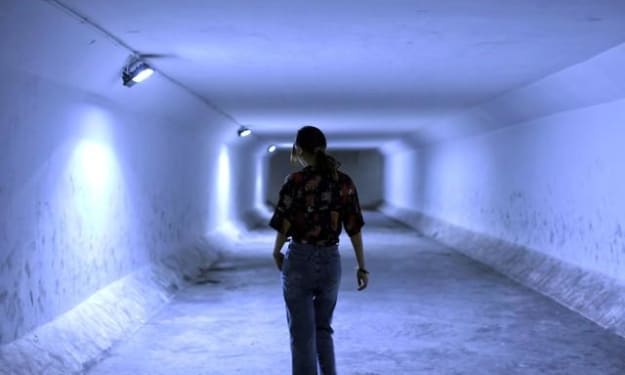Bipolar Disorder and Friendships
How Bipolar affects a friendship

Bipolar disorder can have many co-occurring diagnoses. Today I am going to discuss just two of my co-occurring diagnoses and give you an example of each of them and how they would have affected my friendships, if I wasn’t open about having bipolar disorder with my friends. I think you will agree with me that the fact that I am open about having bipolar disorder with my close friends is something that has benefited me on my path to recovery for mental health.
I have bipolar delusions. Bipolar delusions are a tricky thing. They change your perception and the way you see the world, and others around you. They make you believe things about people you love and care for, things that are not true.
Let me give you an example. I have a friend who runs a non-profit that I volunteer for. At one point I was sick with a sinus infection. I didn’t hear from her for a week. In my bipolar delusional mind, I took it personally that I hadn’t heard from her. However, since she knows about my illness I could say to her. “Hey, I don’t know if you are mad at me, and I did something, or if it is just my delusional mind at work here, but I feel like we haven’t communicated as much, or as often as we normally do.”
She was then able to reassure me that “Tosha it must be your delusions because you have done nothing wrong.”
If I wouldn’t have been open with her about my illness and spoken to her about having delusions in the past, I wouldn’t have been able to talk to her about this situation. I would have walked around worried about this feeling that she was mad at me for something, for maybe a long time, and could have eventually destroyed what is a great friendship.
My anxiety never seems to be completely gone no matter how much I push myself to get out of my comfort zone. Recently I have made some great new friendships and a lot of those friends have asked me to do some new things away from my home. I love people. Doing new things is always exciting and I always am so excited to do something new, until about 2 hours before I must go to that new and exciting new thing and my husband isn’t going to be involved in the new and exciting thing too.
My husband is my support person, and he is the person I turn to for my comfort. I can do anything when he is by my side. However, when it is something new and he isn’t involved I get very nervous and I tend to somehow back out most times. My anxiety will start in, and I will begin to get over whelmed at the thought of doing the new thing. I have found that in most cases it is best not to make up an excuse in these situations. If I have been honest with my friends and I have told them that I really want to go and that I am going to try my hardest to do it, but if my anxiety gets too much for me that night I may have to just not go. They are normally very understanding of my limits. They can understand that better than some lame excuse like I must color my hair.
Many times, I have no other excuse other than I just cannot do it tonight. It truly saves the friendship in the long run because I am not trying to remember what lie it was I told my friend to get out of going to whatever it was she wanted me to go to. If it is a new friend and they aren’t willing to understand my bipolar disorder, honestly, they are not the kind of friend I want in my life. The friend’s worth having will understand. Of course, I don’t cancel every time I make plans and often I do make it. However, my disorder does stop me many times from doing all that I would like to do.
These are just two of the co-occurring diagnoses in my bipolar disorder and how being honest about my bipolar disorder with my close friends has helped me deal better with my path to mental health recovery. Telling people is a personal choice for everyone, and it must be something you are comfortable with and ready to do. But, for me, it was definitely the right choice.
Thank you for taking the time to read this article, please remember that here on vocal we are allowed to receive tips on the community. If you enjoyed the article would you, please consider dropping a bit in my virtual tip jar I would greatly appreciate it. Thanks- Tosha.
About the Creator
Tosha Maaks
Tosha Maaks is a Mental Health Advocate who uses her fashion sense to keep herself feeling her best. She shares those self-care tips you so you can follow her lead while she raises awareness on mental health issues.






Comments
There are no comments for this story
Be the first to respond and start the conversation.